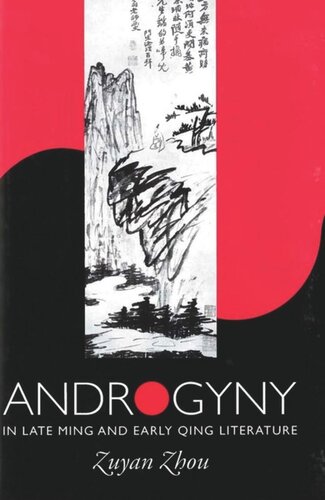

Most ebook files are in PDF format, so you can easily read them using various software such as Foxit Reader or directly on the Google Chrome browser.
Some ebook files are released by publishers in other formats such as .awz, .mobi, .epub, .fb2, etc. You may need to install specific software to read these formats on mobile/PC, such as Calibre.
Please read the tutorial at this link: https://ebookbell.com/faq
We offer FREE conversion to the popular formats you request; however, this may take some time. Therefore, right after payment, please email us, and we will try to provide the service as quickly as possible.
For some exceptional file formats or broken links (if any), please refrain from opening any disputes. Instead, email us first, and we will try to assist within a maximum of 6 hours.
EbookBell Team

4.7
16 reviewsThe frequent appearance of androgyny in Ming and Qing literature has long interested scholars of late imperial Chinese culture. A flourishing economy, widespread education, rising individualism, a prevailing hedonism--all of these had contributed to the gradual disintegration of traditional gender roles in late Ming and early Qing China (1550-1750) and given rise to the phenomenon of androgyny. Now, Zuyan Zhou sheds new light on this important period, offering a highly original and astute look at the concept of androgyny in key works of Chinese fiction and drama from the sixteenth to the eighteenth centuries.
The work begins with an exploration of androgyny in Chinese philosophy and Ming-Qing culture. Zhou proceeds to examine chronologically the appearance of androgyny in major literary writing of the time, yielding novel interpretations of canonical works from The Plum in the Golden Vase, through the scholar-beauty romances, to The Dream of the Red Chamber. He traces the ascendance of the androgyny craze in the late Ming, its culmination in the Ming-Qing transition, and its gradual phasing out after the mid-Qing. The study probes deviations from engendered codes of behavior both in culture and literature, then focuses on two parallel areas: androgyny in literary characterization and androgyny in literati identity. The author concludes that androgyny in late Ming and early Qing literature is essentially the dissident literati's stance against tyrannical politics, a psychological strategy to relieve anxiety over growing political inferiority.